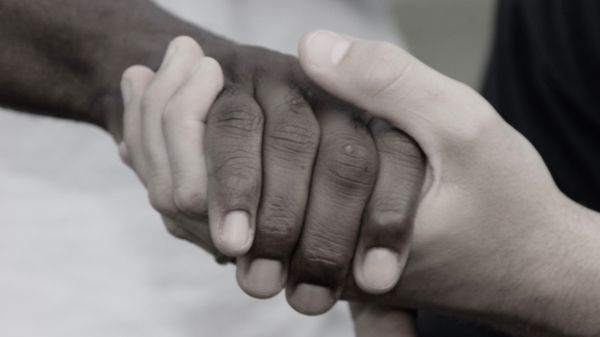Tell Me A Story

Written by Robert Valentine
"My people, hear my teaching; listen to the words of my mouth. I will open my mouth with a parable; I will utter hidden things, things from of old—things we have heard and known, things our ancestors have told us. We will not hide them from their descendants; so the next generation would know them, even the children yet to be born, and they in turn would tell their children.” (Psalm 78)
We often forget that for many thousands of years perhaps the only form of diversion was storytelling. During the time humans discovered fire and the uses of it, the power of the wheel, how to hunt for food and which berries to avoid—all of the things that go into making a successful family, then a village, a city, and then a culture—there was nothing to do when the sun went down but to sit around the fire and look at each other.
Then came the day when someone told about the hunt for the great buffalo. Then when “my brother fell off the log . . . ” Eventually, someone explained to the young ones why the sun goes over the horizon, and where he sleeps. Most of these conversations combined an interesting mix of fact and fancy.
Storytelling—and listening—may be part of who and what we are.
The story became a good way to explain reality and to teach lessons. Even today, it is probable that more children refrain from stealing out of a garden because they remember Peter Rabbit than because they memorized the Ten Commandments. Stories can make things seem real, and it is easier for the listener to see himself or herself as a part of the story. What happens to you is real even if you only heard about it—and imagined.
Stories are important to those who would safeguard our natural and human-built world because they can help us better understand how people relate to other living things and the planet that sustains them. Stories are easier to remember than the dynamics of chemical reactions; stories are clearer explanations even when the characters are mythical and the actions are magical.
Understanding is vital if people are to be enlisted in the defense of nature.
Baba Dioum (a Senegalese Conservationist) puts it very well: "In the end, we will conserve only what we love, we will love only what we understand, and we will understand only what we have been taught.”
Stories teach.
There are many different kinds of stories: stories have different forms and different intents. However, the best kind of story for remembering vital lessons is probably the story that relates directly to the listener. A grandfather’s story will be remembered long after the television’s story is forgotten. Your aunt’s story about moving to New York City as a young woman will build much more self-confidence in you than a multi-million dollar movie production.
That’s why it is good for us to tell stories to our community of listeners. That is why it is good to tell them often, regardless of your own modesty or the occasionally distracted youngster. If one telling was sufficient, there would be no churches and even fewer schools. Every hearing brings deeper understanding, and all that comes with it.
I know this for a certainty. I once wrote a story about what happened to me on a summer vacation; it had an unforgettable impact on me. The magazine editor printed it, and I sent a copy to my mother who proudly sent it along to my younger brother.
Then, much later, I had a phone call from my brother who enjoyed the memory, but asked, “Why did you tell it that way?” I didn’t understand.
“That’s the way it happened; what other way could I have told it?”
“No,” he said, “It didn’t happen to you. It happened to Mom. Remember?”
And I did. In an instant I realized it was a story from my mother’s early childhood—one heard a dozen times or more around the Christmas dinner table, around a campfire in the summer, while on a trip to take my uncle to the airport. I had stolen a story from my mom.
Yet, I did not take anything that wasn’t mine. I learned the lesson in the story, but not because I made a mistake and was chastised. The learning was all the easier because I knew the protagonist of the story, and I knew her well. I had heard the story many times and then, as I grew older and the tellers of that tale either passed away or were seldom visited, I didn’t hear it and I didn’t think of it.
Then, one day, something triggered a memory and there I was: right in the middle of the whole tale, just as if I had been there for nearly 70 years. Now, it was my story. It had been given to me a dozen times, and I accepted it.
Like me, you cannot give experiences and understanding to those who will listen, but you can tell them a story. You really should, you know. No one else can do it as well. No one else should. No one else will.
Now: Tell me a story.
Stay tuned for books to use to teach storytelling.
Author: Dr. Robert Valentine is a longtime professor of speech and theatre at Murray State University. His one-person plays of Mark Twain and others have been well received. He has received awards of note as a teacher at the university level. His storytelling and performing have been well received and sought. His contributions to the Center for Environmental Education at Murray State, especially during Summer Institutes, include taking on roles of persons Between the Rivers and stories told around the campfire have been riveting. He is now an emeritus professor after more than 45 years of teaching at the university. But retirement has not stopped his storytelling since he continues to make a name for himself on a national and world stage as a host of numerous Highland Festivals and other events highlighting his ancestral land, Scotland.
Photo credit: Joe Baust


Comments
Thanks for this post. It's also great to get kids to tell their stories specifically about their time in nature. I have led many workshops helping kids use accessible iPad tools to animate their experiences in nature and the flora and fauna they find. They embrace the experience whole heartedly.
This is so true and is really what led my husband and me to start Arbordale Publishing almost 20 years ago... People who remember stories are more apt to ask deeper questions... And even for very young kids, hearing stories about science and nature starts building a strong foundation for later learning and understanding.
In reply to 889 by Rebecca Franzen
Thank you Helen...if you have any suggestions for teaching using storytelling...please share with us on the blog.
This blog really touches me. The Baba Dioum quote is one that I truly believe and have often shared throughout my EE career. The emphasis on the power of words, especially spoken word, is one that I have reveled in. These words can often be more powerful than any factual information you are presented. I have long been a consumer of regional folk stories. The flight of fancy some take you on always draws me to question where and why did this folk story begin. Why was it important to tell this story? I believe our brains are very queued to receive these words in a spoken format from our ancestors. A friend within a local indigenous tribe boasts of the richness of their stories and verbal histories. While having written word preserves our histories, the lack of colorful tales that would be passed down through families may disconnect us from our place in that history. Thanks for a wonderful read!